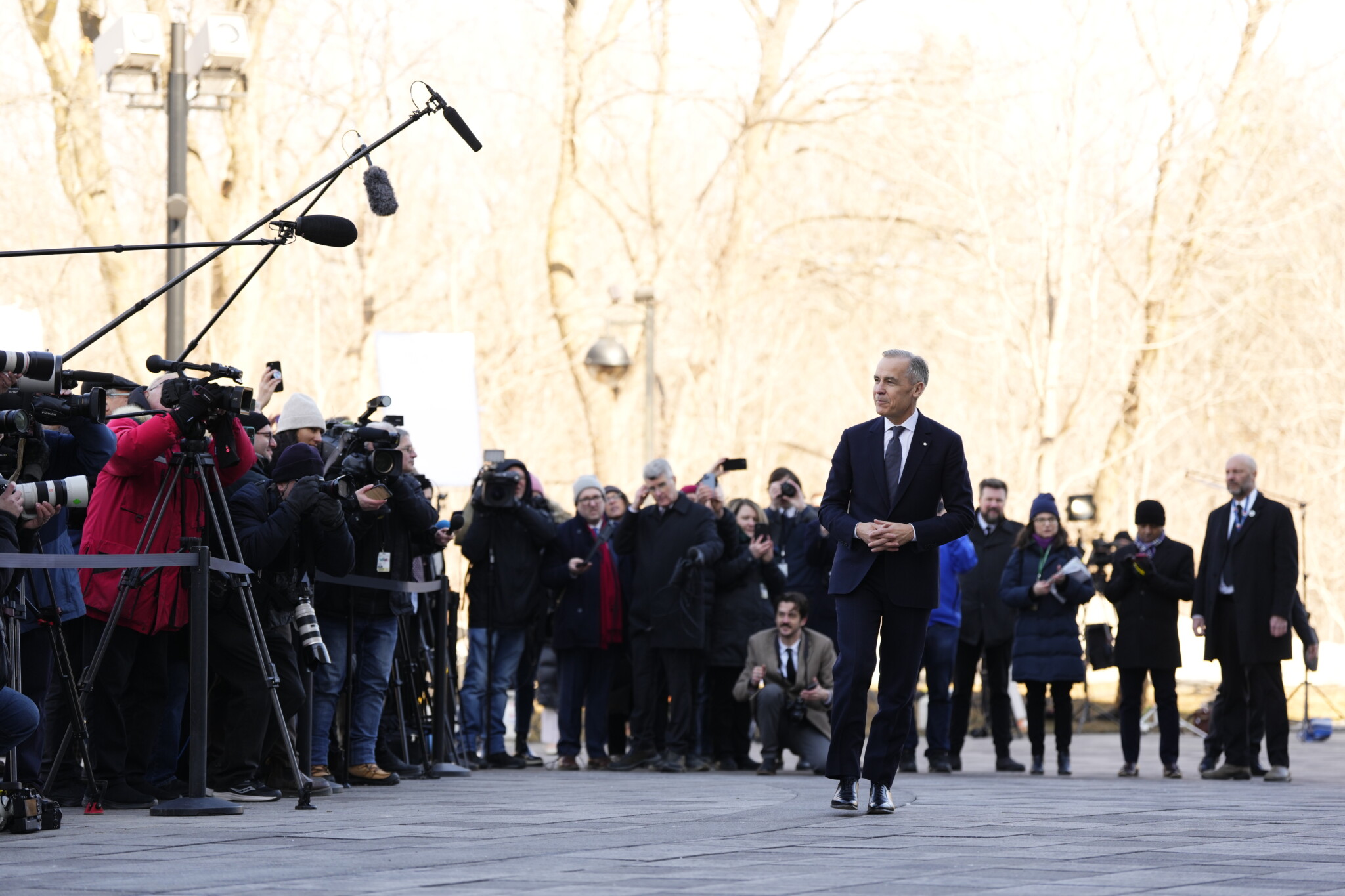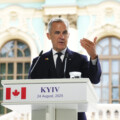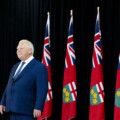There are a lot of poor choices available to be made concerning the future of the Canadian news industry.
On Friday, Liberal leader Mark Carney chose one of the worst when he vowed to give the CBC whatever it needs—an extra $150 million immediately to top up the $1.4 billion it already gets from the public purse. Plus, he wants it to continue competing with the private sector for advertising revenue. And, eventually, he wants to double that $1.4 billion to…oh heck let’s just call it $3 billion annually.
That should build a big, powerful corporation, but it won’t be a public broadcaster. It will be what it has been for a number of years now: a publicly funded commercial news and entertainment corporation operating on multiple platforms, in multiple languages, and in fierce competition with the so-called “private sector.”
Carney also says it will have a new direction, but here’s the thing with CBC mandates: after years of thumbsucking and wondering on sweated brows “wither the CBC,” all that is likely to be created is a series of carveouts for various special interest groups looking to cash in on the action. Twenty million here for LGBTQ2 producers, $20 million here for BIPOC programming, $50 million for Indigenous…it goes on.
Then, once that’s in place and the money’s flowing, no one will really care whether other parts of the “mandate” are achieved or not just as everyone knows the Canadian Radio-television Commission (CRTC) can’t really do a damn thing about the CBC should it decide to ignore the conditions placed upon it through its broadcasting license. Which is why, while the CBC is licensed for five years at a time, the CRTC only gets around to renewing its license once every 10 or 12 years. Every chair and near every commissioner to have served there this century knows it’s a waste of time, money, and staff hours for what in the end is little more than a theatrical ritual. Does anyone believe the CRTC would take away the CBC’s license? Of course not.
And the CBC knows that. Otherwise, it would not have so flagrantly flouted the law and turned Radio Canada International—which is “mandated” by the Broadcasting Act—into what it is, which is essentially an online multicultural radio service competing with similar private sector services in markets across the country.
But that’s not the most alarming part about Carney’s plan for the CBC.
The truly frightening part is that if Carney doubles the CBC’s funding and allows it to continue to sell advertising, he might as well line the country’s private sector broadcasters and newspaper publishers up against the wall and open fire.
He clearly doesn’t understand the harmful consequences his CBC plan would inflict upon the nation’s news ecosystem. He appears to be quite happy to continue down the disastrous rainbows and unicorns digital policy trail blazed by Justin Trudeau, Pablo Rodriguez, Steven Guilbeault, and Pascale St-Onge.
The CBC is already the largest player in the Canadian news industry. It employs, according to Heritage Canada, one in three journalists currently working in the country.
If its annual allowance from Parliament is doubled, there will no longer be any incentive for, to begin with, CTV, TVA, Noovo, or Global to offer news. They will undoubtedly want to get out of the business unless their news operations are also heavily subsidized—which the CRTC is currently trying to figure out how to do by milking American streaming companies (good luck with that).
Radio licensees will make the same case. It just won’t be possible for them to survive if one of their major competitors is subsidized at that level.
As for newspapers, almost all of them currently depend upon the treasury either in the form of tax credits, programs like the Canada Periodical Fund, or the direct payment of reporters’ salaries. If the CBC gets its allocation doubled, they will insist that it is only fair that their subsidies also double.
As the saying goes, a billion here, a billion there, and pretty soon you’re talking real money. And that means increased fees or taxes, hidden and flagrant, that Canadian consumers will have to pay.
Worse, much worse, is that the public is already uncomfortable with its media being dependent upon the politicians it expects journalists to hold to account. And, try as publishers and broadcasters might to keep these associations secret, the internet will forever be outing them. As we are seeing in this election, large segments of the population see reporters—no matter how virtuous their work—as nothing more than the Liberal comms team.
The CBC cannot be dealt with, as it once was, in isolation. It can only be managed within the framework of a national news industry policy that insists upon as little connection as possible between media and politicians—a free press, in other words.
Without that, Carney and those who share his thinking will find themselves, much like the CRTC, subsidizing a product fewer and fewer people will trust enough to consume.
You don’t need a doctorate in game theory to figure that out.










